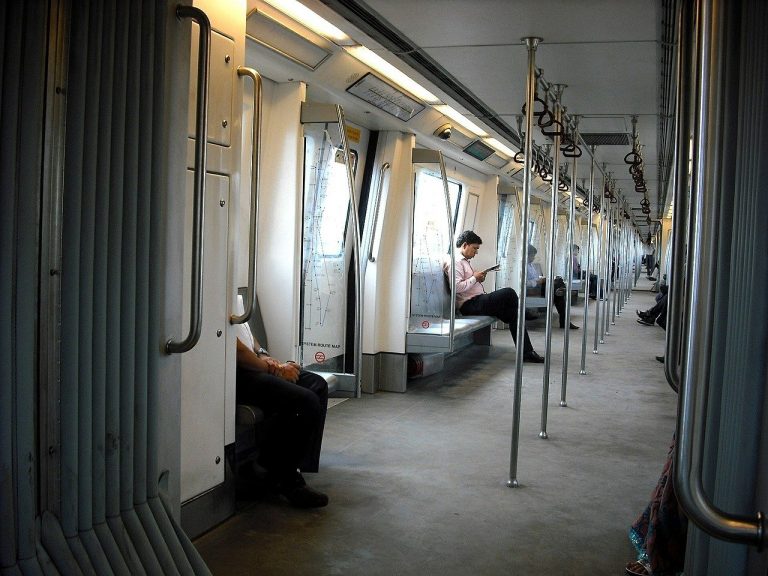Japan will be offering $2 billion in grants and loans to India to fund infrastructure projects for the world’s second largest population following the recent Quad Summit between Japan, Australia, the United States, and India. The funding will cover development of two strategically placed islands in the Indian Ocean, upgrades to India’s public transit systems, funds for farmers, and the development of a water supply project.
Japanese Ambassador, Suzuki Satoshi, exchanged finance Notes to complete the loan agreement with India’s Additional Secretary of the Ministry of Finance, C.S. Mohapatra on March 26.
The loan is worth 232.86 billion yen ($2.11 billion USD approx.) and includes a project in India’s Andaman and Nicobar Islands, a strategic location in the Indian Ocean. The island chain will receive 4.02 billion yen ($36 million USD approx.) for the development of electric grid infrastructure.
An anonymous official from the Japanese Embassy told PTI this is the first-ever Official Development Assistance (ODA) project in the island region, “Due to its geopolitical location, Andaman and Nicobar Islands play a crucial role in our shared vision for a free, open and inclusive Indo-Pacific.”
“Cooperation between Japan and India on these crucial islands demonstrate the commitment of both countries to realizing a stable, peaceful, and prosperous Indo-Pacific,” he said.
Success
You are now signed up for our newsletter
Success
Check your email to complete sign up
The Andaman and Nicobar project will purchase 15WM batteries and power system stabilizers for ensuring reliable electricity generation from a solar power system in South Andaman. The project is expected to play a part in India’s proclaimed goal at making the islands powered 100 percent by renewable energy.
Other projects covered under the loan agreement include:
- 119.9 billion yen ($1.08 billion USD approx.) for Delhi Metro’s Phase IV construction that includes the setting up of three priority corridors. To date, Japan has loaned India approximately 705.2 billion Yen for the Delhi Metro project;
- 53.36 billion yen ($480 million USD approx.) has been allocated for constructing three new lines for the Phase II expansion of the Bengaluru Metro;
- 11.32 billion yen ($100 million USD approx) will be offered to support crop diversification in the state of Himachal Pradesh. The funding aims to ensure farmers have increased bargaining power, while also strengthening partnerships between private firms and Farmer Producer Organizations (FPO); and
- 45.8 billion yen ($410 million USD approx.) set aside for Phase Two of a rural water supply project in Rajasthan. The project is expected to supply water to almost 1.7 million people.
The Japanese loans have a redemption period of 30 years, and come with a grace period of 10 years. The interest charged is 1.15 percent per annum. The country’s aid to India supports Tokyo’s Free and Open Indo-Pacific (FOIP) strategy which some have compared to the Chinese Communist Party’s Belt and Road Initiative (BRI).
However, the Japanese government has been careful to explain the FOIP does not embody the same hegemonic ambitions to conquer and install its political system as the communist regime does.
In 2019, Tadashi Maeda, Governor of the Japan Bank for Institutional Cooperation said at the Center for Strategic and International Studies in Washington, “[Japan’s initiative] is different. It is based on three pillars: promotion of the rule of law, freedom of navigation and free trade.”
India has repeatedly asserted that it does not want to join the BRI, as the scheme does not provide a level playing field for Indian businesses.
Tokyo is also cooperating with New Delhi to develop the landlocked Northeast part of India, funding roads, bridges, hydroelectric power stations, and more, “The Northeast connects us to our neighbors and to one of the most economically dynamic and politically significant geographies of the world – the ASEAN and the Indo-Pacific,” Foreign Secretary Harsh Vardhan Shringla said in a statement.
“It is therefore logical that we have chosen to work with one of our most valuable partners, Japan, for the development of this area… Our relations with Japan have acquired the dimensions of a Special Strategic and Global Partnership, firmly rooted in history and based on common values.”
Follow us on Twitter or subscribe to our email list


















